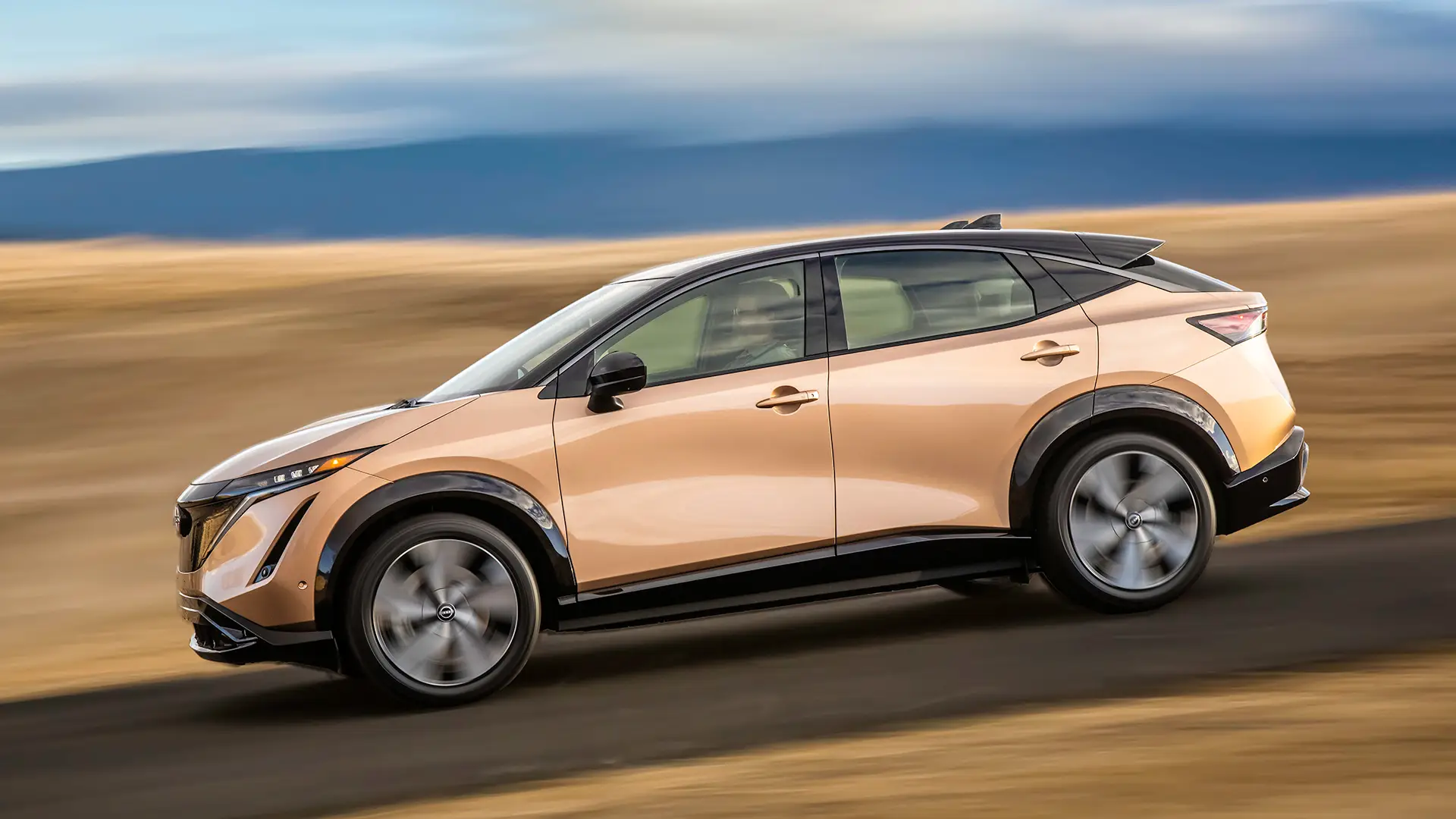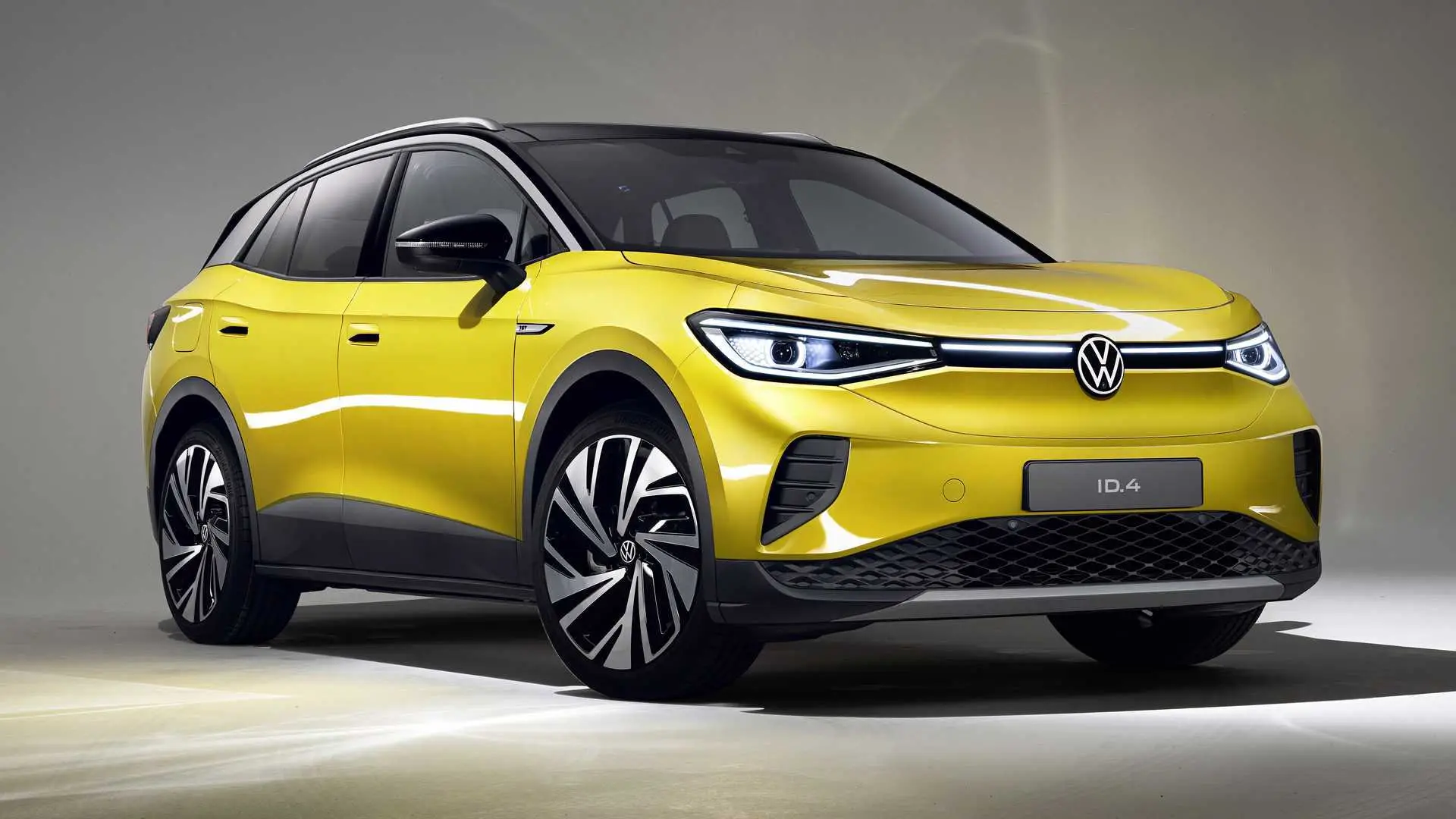The Nissan Ariya and Volkswagen ID.4 are two standout electric vehicles in the growing EV market, each offering distinct advantages and innovative features. As more consumers pivot towards sustainable transportation, understanding the differences between these models in terms of pricing, design, performance, and technology is crucial. This comparison will help you determine which vehicle best suits your needs and lifestyle.
Pricing and Trim Levels: Nissan Ariya vs Volkswagen ID.4
Pricing and available trim levels are critical when selecting an electric vehicle, influencing both budget and desired features.
-
💰 Base Model Pricing: The Nissan Ariya starts at around $43,000, offering features like ProPILOT Assist and dual displays, while the Volkswagen ID.4 begins at approximately $38,000, providing a user-friendly interface and standard driver-assistance features.
-
🚀 Performance Trims: The Ariya's top trims offer features such as e-4ORCE all-wheel drive and a larger battery, enhancing performance and range, whereas the ID.4's higher trims include a more powerful electric motor and increased towing capacity.
Design and Exterior Features: Nissan Ariya vs Volkswagen ID.4
Design and exterior features greatly affect an EV's appeal and functionality, contributing to both aesthetics and efficiency.
-
🎨 Aerodynamic Design: The Nissan Ariya boasts a sleek, minimalistic design focused on reducing drag for better efficiency, while the ID.4 combines modern lines with aerodynamic enhancements for a sporty look.
-
💡 Lighting and Aesthetics: The Ariya features thin LED headlights and a bold illuminated grille, creating a futuristic appearance. The ID.4 offers adaptive LED headlights and a light bar across the front, emphasizing its modern style.
-
🚪 Unique Features: The Ariya includes a panoramic glass roof and flush door handles, enhancing its sophistication. The ID.4 offers a distinctive rear hatch design and a striking roof rail system.
-
📏 Exterior Dimensions: The Ariya's compact crossover dimensions offer a balance between road presence and urban maneuverability. The ID.4's slightly larger size translates to a spacious interior, although it may present challenges in tighter parking spots.
Interior and Cabin Space: Nissan Ariya vs Volkswagen ID.4
Interior comfort and space play a pivotal role in the overall EV experience, influencing passenger comfort and usability.
-
🪑 Seating and Comfort: The Ariya offers Zero Gravity seats for enhanced comfort on long drives, while the ID.4 provides supportive yet firm seats, with ample legroom in both models for passenger comfort.
-
📱 Technology Integration: The Ariya features dual 12.3-inch displays for seamless information access, whereas the ID.4 integrates a 10-inch display with an optional 12-inch upgrade, focused on user-friendly interaction.
-
🧳 Storage and Utility: The Ariya provides around 22.8 cubic feet of cargo space with rear seats up, designed for practicality, while the ID.4 offers approximately 30.3 cubic feet, showcasing its utility-focused design.
Performance and Acceleration: Nissan Ariya vs Volkswagen ID.4
Performance and acceleration are key factors in the EV experience, influencing both driving pleasure and efficiency.
-
⚡ Acceleration and Speed: The Ariya accelerates from 0-60 mph in about 5.1 seconds in its higher trims, offering a dynamic ride. The ID.4 takes a more leisurely 7.6 seconds, prioritizing smoothness over speed.
-
🛞 Handling and Drive Modes: The Ariya includes multiple drive modes, such as Sport and Eco, catering to various driving preferences. The ID.4's rear-wheel-drive setup provides balanced handling and a steady ride.
Range and Battery Options: Nissan Ariya vs Volkswagen ID.4
Range and battery options are critical considerations for any EV buyer, impacting daily usability and travel potential.
-
🔋 Battery Options: The Ariya offers two battery sizes: a 63 kWh and an 87 kWh option, while the ID.4 provides a single 82 kWh battery pack, ensuring a balance between cost and range.
-
🌍 Real-World Range: The Ariya's larger battery provides up to 300 miles per charge, ideal for long-distance travel. The ID.4 offers around 250 miles, suitable for daily commutes and weekend trips.
Technology and Safety Features: Nissan Ariya vs Volkswagen ID.4
Advanced technology and safety features enhance driving confidence and convenience in modern EVs.
-
🤖 Driver Assistance Features: The Ariya includes ProPILOT 2.0 with hands-free highway driving, while the ID.4 offers Travel Assist for semi-autonomous driving, ensuring safety and ease.
-
🚘 Full Self-Driving (FSD): Nissan's system focuses on guided highway driving, whereas the ID.4's system emphasizes driver support and safety without full automation.
-
🛡️ Active Safety Features: Both models include lane-keeping assist, adaptive cruise control, and emergency braking, providing peace of mind.
-
⭐ Crash Test Ratings: Both vehicles have received high safety ratings, with the ID.4 achieving a five-star rating from Euro NCAP, highlighting their reliability.
Charging Options and Infrastructure: Nissan Ariya vs Volkswagen ID.4
Charging options and infrastructure are vital for EV ownership, affecting convenience and range confidence.
-
⚡ Home Charging: The Ariya supports Level 2 home charging with an 11 kW onboard charger, while the ID.4 similarly offers efficient home charging, both providing overnight replenishment.
-
🌍 Public Charging Networks: Both models utilize extensive public charging networks, with the Ariya benefiting from the CHAdeMO system and the ID.4 leveraging the growing CCS infrastructure.
Charging Speed: Nissan Ariya vs Volkswagen ID.4
Charging speed plays a significant role in minimizing downtime for EV owners.
-
⚡ Home Charging Speed: Both the Ariya and ID.4 offer similar home charging times, achieving full charges in about 9-10 hours with Level 2 chargers.
-
🌍 Fast Charging Speed: The Ariya supports up to 130 kW fast charging speeds, while the ID.4 offers up to 125 kW, ensuring rapid replenishment on long trips.
-
🛠️ Third-Party Chargers: Both models are compatible with third-party networks like Electrify America, ensuring flexibility and convenience during travel.
Customization Options: Nissan Ariya vs Volkswagen ID.4
Customization options allow buyers to personalize their EVs, tailoring aesthetics and features to individual tastes.
-
🎨 Exterior Colors: The Ariya offers elegant color options like Akatsuki Copper and Pearl White, while the ID.4 provides vibrant choices such as Dusk Blue Metallic and Glacier White.
-
🛞 Wheel Designs: The Ariya offers a range of 19- and 20-inch wheel designs, enhancing its visual appeal, while the ID.4 features sporty 18- to 20-inch wheels, complementing its modern look.
-
🪑 Interior Trims: The Ariya presents premium materials and a minimalist cabin vibe, while the ID.4 features eco-friendly materials and intuitive design, focusing on comfort and sustainability.
Conclusion: Nissan Ariya vs Volkswagen ID.4
In conclusion, these vehicles each have unique strengths and considerations for potential buyers.
-
✅ Strengths of Each Model: The Ariya excels in range and advanced technology, while the ID.4 offers competitive pricing and spaciousness.
-
❌ Considerations: The Ariya's higher trims can be costly, and the ID.4 may not match the Ariya's range, influencing long-distance travel plans.




